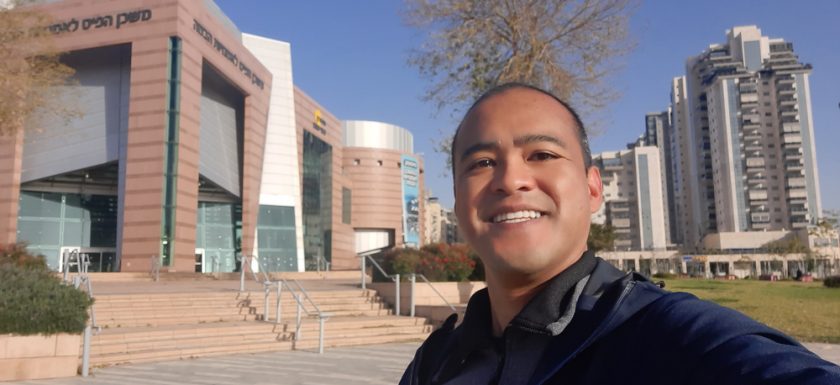
A research stay abroad that is well planned and executed can propel your advancement as a doctoral student. It also gains you valuable professional contacts and broadens your horizon. When doctoral student Erwin Fernandez somewhat stagnated with his experimental results, he was positively surprised what his co-supervisors in the project and a change of perspective could do for him.
An interview by Ulrike Goldenblatt, Coordinator of HI-SCORE
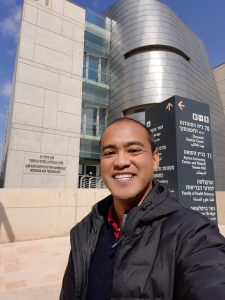
How was your research stay in Israel ?
I am back in Berlin after a month-long stay at Ben Gurion University (BGU) – Ilse Katz Institute of Nanoscale Science and Technology in Be’er Sheva, Israel. My primary purpose of my research stay was to learn the procedure for the extraction of photogeneration yield in transition metal oxide thin film photoabsorbers, which forms an essential part of my research work. I must say that my stay was a fruitful one, having successfully learned the tools I need to extract the photogeneration yield in my epitaxial BiVO4 thin films.
How do you personally benefit from the HI-SCORE network?
The HI-SCORE network allowed me to interface with my Israeli counterparts, and most importantly to establish my collaboration with my host laboratory at BGU. Aside from learning and benefiting from the expertise in photogeneration yield analysis from Dr. Daniel Grave’s team at BGU, the HI-SCORE network provided me a unique opportunity to experience working with colleagues in an Israeli working environment, as well as experiencing the day-to-day life in Israel in general.
What was your daily routine like?
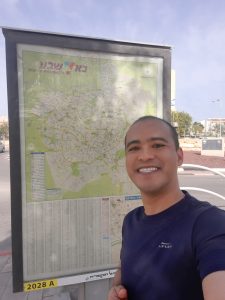
I worked daily in an office allocated by my host supervisor, Dr. Daniel Grave, from Sunday-Thursday, 9 am-6 pm. Going to the office takes 15 minutes by foot from my dormitory accommodation. My office offered me a relatively peaceful space for me to work, which allowed me to highly focus on my work involving computational/modelling tasks. I take a 1-hour lunch break in the university canteen, or in the dorm. On some occasions I drop by my lab mates’ office for some chat – science or otherwise – over coffee and chocolate. On Shabbat, I do my 21k runs around the city.
What do you find in the lab or in the work conditions that is different from here at HZB?
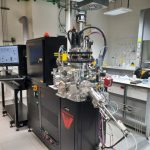
I appreciate their laboratory management system over in BGU-Ilse Katz Institute – their system allowed for a quick overview of bookings/reservations of all instruments/facilities institute wide. attain. I also loved how the BGU-IKI building has a lounge on every floor!
Who is helping you, advising and motivating you?
I’ve been guided by Dr. Grave himself, and Sa’ar Peled, Dr. Grave’s PhD student. They were extremely helpful in explaining to me the fine details of photogeneration yield extraction and optical modelling of thin films, things that I won’t be able to read from already published literature or learn by my own in a short span of time. Understanding the technique is enough motivation for me to push my work forward.
What is the most interesting thing you came across so far ?
I did take for granted the optical modelling aspect of my work up until my visit in BGU, which was eye-opening. Now I fully realize how important optical modelling is to my current work. On the personal side, I discovered for myself the wonders the Dead Sea mud can bring, especially on our skin! How it made my skin very smooth and supple is beyond amazing!
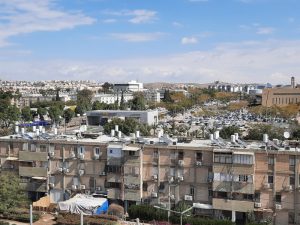
HI-SCORE International Research School – Harvesting the Sun efficiently
The Helmholtz International Research School HI-SCORE offers PhD students the option to pursue their PhD in cooperation of HZB with the best Israeli universities and graduate schools in order to conduct solar energy research.
More information > https://www.helmholtz-berlin.de/jobskarriere/karrierewege/promotion-am-hzb/research-schools/hi-score/index_en.html
